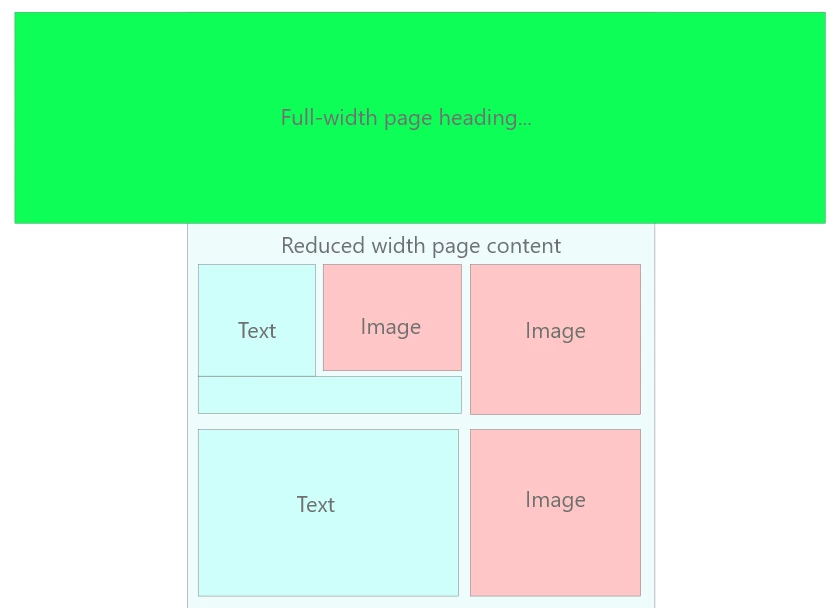How do I control varying page content width?
I'm thinking that most of my pages contents do not need full width in the body of each page. But I would like to have full-width page headings, perhaps even some full-width elements in a page that is limited to say 1200px wide. Something like this:

If I set a reduced body width,
How do I then override this for a full-width element?
.fullwidthheader {
something to override and set body width to 100% only for this class
}
If this isn't on, what's the best alternative? Do I set body width to 100% and then put all the content in a reduced-width container?

